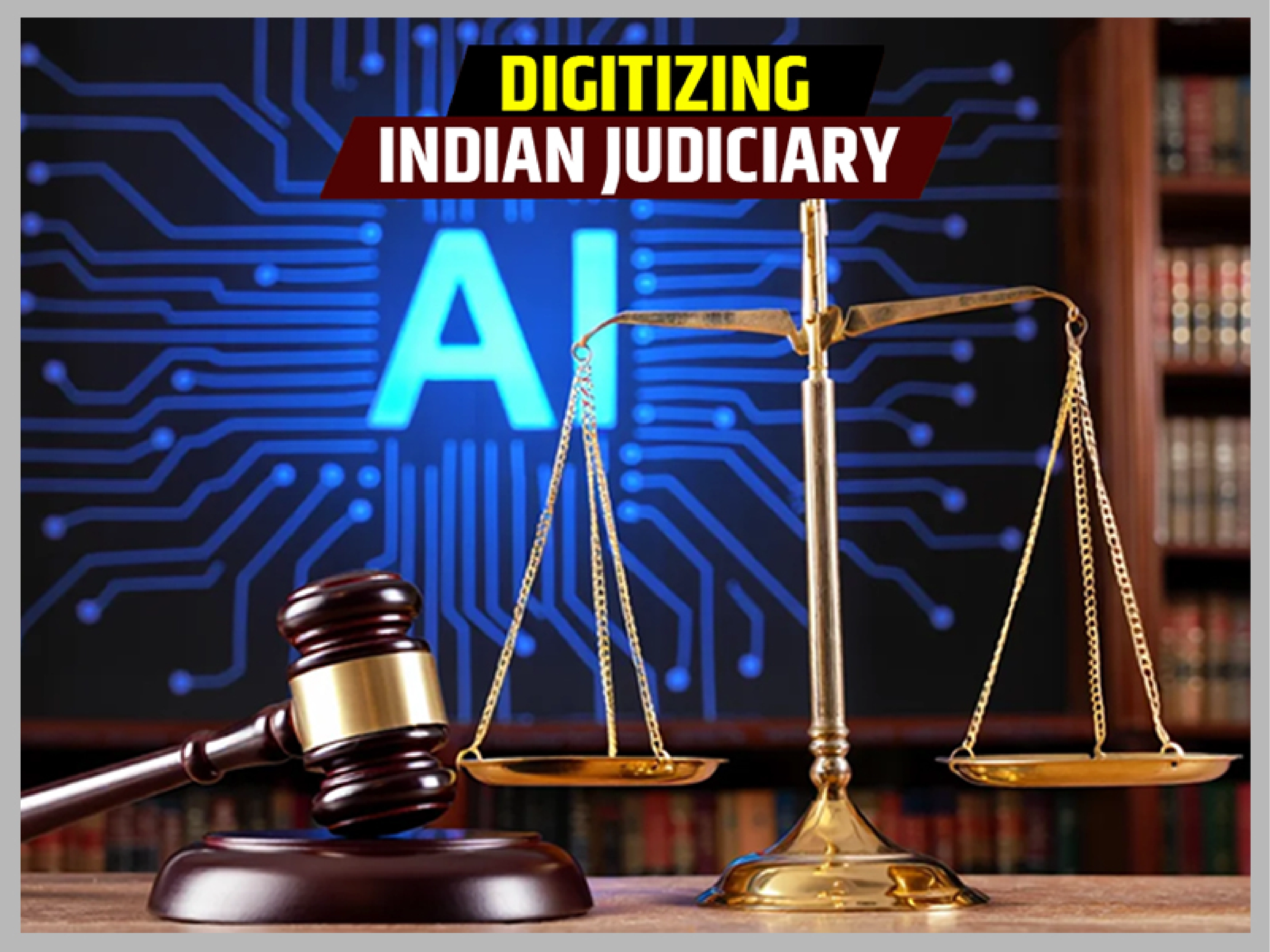DIGITIZING INDIAN JUDICIARY enhances transparency, efficiency, and access to justice. Learn about its benefits, challenges, ICT initiatives, and the way forward.


Digitizing Indian Judiciary is a transformative step toward ensuring a more transparent, accessible, and efficient legal system. By leveraging technology, the judiciary can streamline case management, improve access to justice, and enhance public trust. However, the shift to a digital framework also presents challenges that need strategic solutions.

A digitized judiciary allows citizens to observe trials, ensuring accountability of judges, lawyers, and legal participants. It helps in reducing misinformation and speculation regarding judicial proceedings.
With Digitizing Indian Judiciary, people can benefit from automated case filing, certified digital judgments, and real-time case status updates, making legal processes more efficient and time-bound.
Technology enables remote hearings, virtual courtrooms, and electronic submission of evidence, ensuring that geographical barriers do not hinder access to justice.
Digital tools assist in tracking case durations, optimizing scheduling, and reducing delays, leading to faster legal resolutions.
Public participation and feedback through digital platforms foster inclusivity and promote a more responsive judicial system.
The E-Courts Project integrates with other legal systems like Interoperable Criminal Justice System (ICJS) and NALSA, enhancing judicial efficiency and coordination.
Researchers, scholars, and legal professionals can easily analyze past judgments, legal arguments, and judicial reasoning, aiding the evolution of jurisprudence.

Efficient digitization requires high-speed internet, uninterrupted power, secure data centers, and substantial financial investment, which many courts lack.
A well-defined legal framework for e-courts and online streaming is currently missing, creating ambiguity in implementation.
Many legal professionals lack technical expertise and resist adopting digital tools, slowing down digitization efforts.
Limited digital literacy and lack of internet access in rural and remote areas create disparities in accessing digital judicial services.
The absence of strong data protection laws increases the risk of hacking, data breaches, and misuse of sensitive legal information.
In sensitive cases like sexual assault or child abuse, witnesses may feel uncomfortable testifying in a digitized, publicly accessible setting.
Not all evidence can be digitized or authenticated digitally, leading to legal concerns about data manipulation and trustworthiness.
Delhi High Court became the first in India to introduce e-inspection of digitized judicial files, enhancing case transparency.
Ensures quick electronic transmission of Supreme Court orders, reducing unnecessary delays.
An AI-based platform that assists judges by gathering relevant legal data and streamlining research.
Launched by the Supreme Court to facilitate paperless court proceedings across all benches.
A platform designed to track and manage cases efficiently throughout their legal lifecycle.
A machine-learning-based translation tool for converting judicial orders into regional languages swiftly.
Digitizing Indian Judiciary is essential for ensuring a modern, transparent, and efficient legal system. While challenges exist, strategic reforms, infrastructure investments, and legal frameworks can address these concerns. With proper execution, digitization can make justice more accessible, accountable, and inclusive for all.


Refine your answer writing skills and elevate your UPSC preparation with personalized support and expert feedback.
Fill out the form to get started with the program or any other enquiries !








Are you dreaming of becoming an IAS officer? Then, IAShub can be your best guide. It is one of the Best IAS Coaching in Delhi. Many students who want to clear the UPSC exam join IAShub for learning. The institute gives both online and offline classes. Their teachers are experienced and helpful. They easily explain every topic. Students also get notes, tests, and tips to do well in the exam.
IAShub is in Delhi and is trusted by many UPSC students. It offers coaching for every part of the UPSC exam – Prelims, Mains, and Interview. The classes are simple and easy to understand. The teachers are experts and guide students in the right way. IAShub is also known for its helpful notes, test series, and answer-writing practice. IAShub is the best coaching in Delhi and also gives UPSC Online Classes. This helps students from any place in India to learn. The online classes are live and also recorded. So, students can watch them anytime. These classes cover the full UPSC syllabus.
Here are some important services provided by IAShub:
The UPSC Civil Services Exam has three parts:
This exam is tough, but with the right guidance, it becomes easy to manage. Students must study smart and stay regular.
IAShub supports students from the beginning to the end. It gives the right books, tests, and notes. The classes are easy to follow, and the teachers are always ready to help. Students get personal doubt sessions too. The test series and answer checking help students learn where they need to do better. Also, free study materials save time and money.
IAShub also guides students during the final stage – the interview. Experts take mock interviews and give useful tips. This full support makes IAShub one of the best IAS coaching in Delhi.